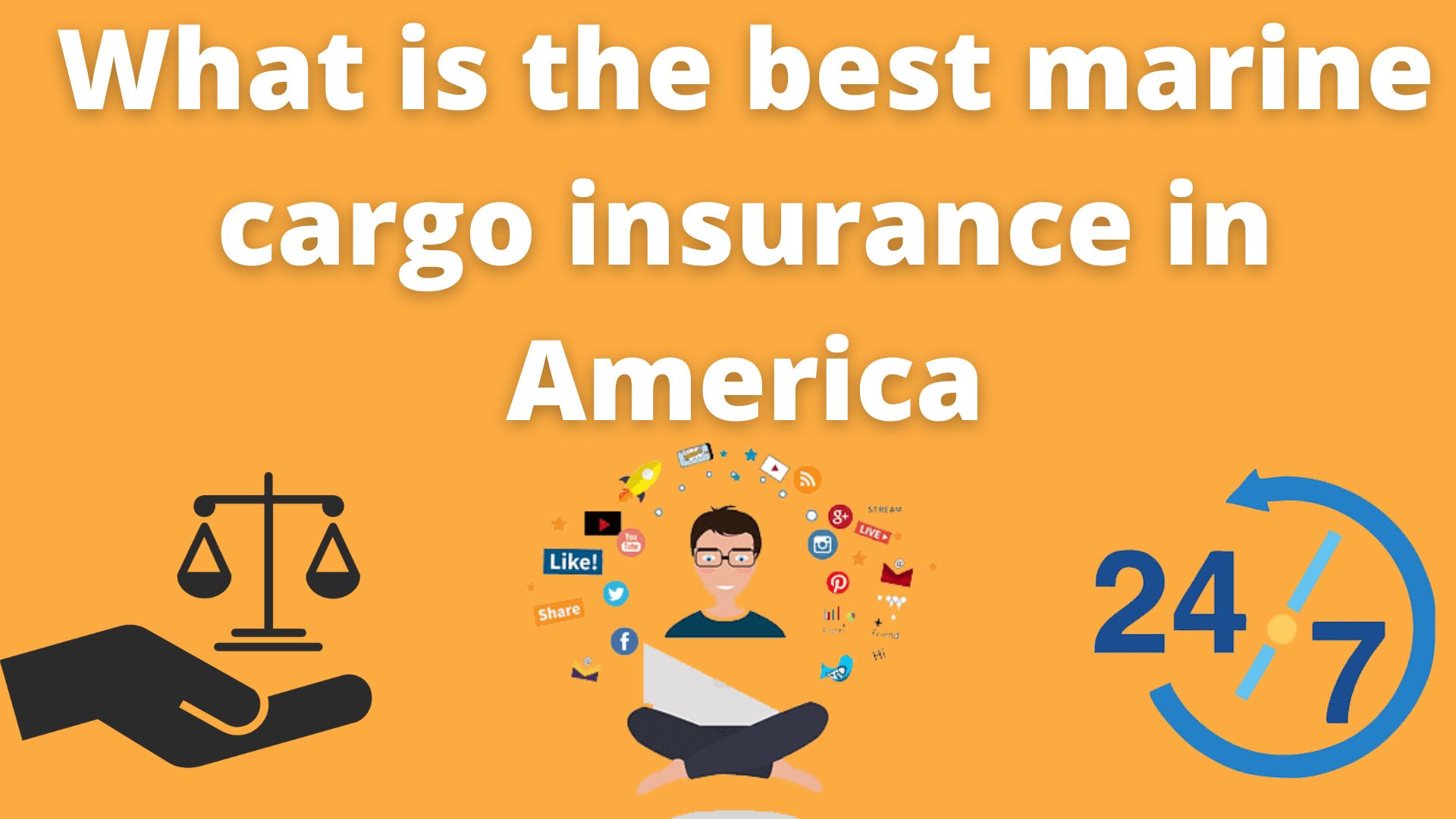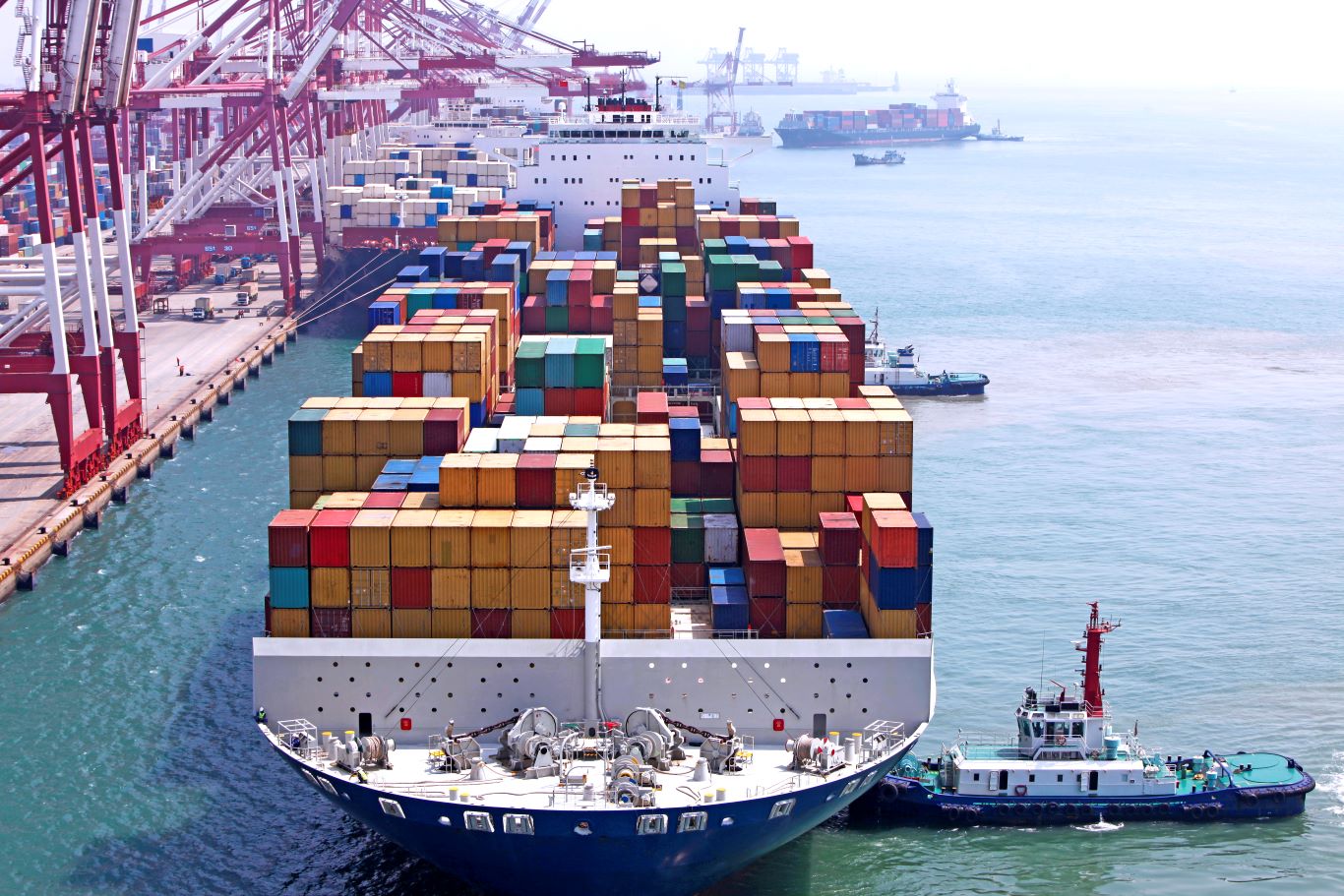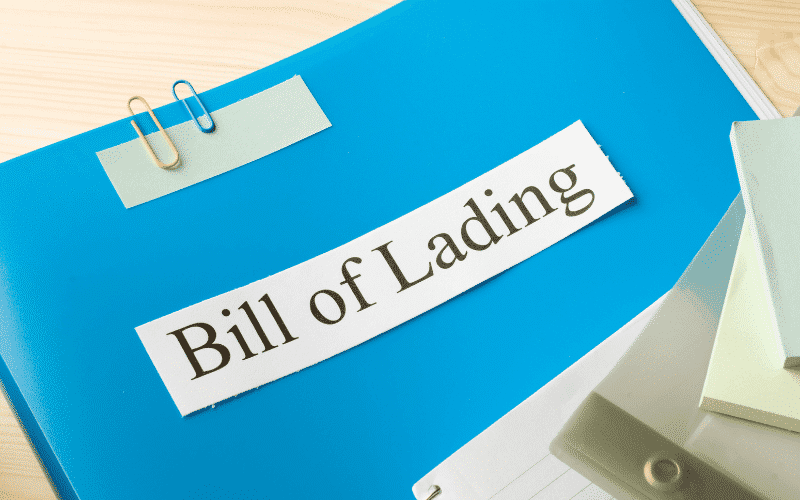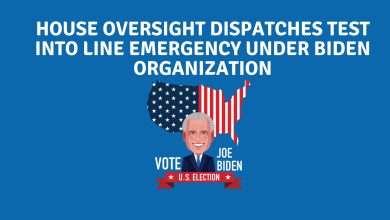What is the best marine cargo insurance in America
Marine freight insurance is the insurance of property as it moves from one place to another. The word “nautical” conjures up sea and above all in the minds of the 1906 Maritime Insurance Act (MIA) book it was indeed a sea transit.

While the law in its opening sections refers to “marine losses,” “marine adventure,” and “marine perils,” marine insurance departments insure property transported by aircraft, road and rail vehicles as well. Many transports, especially international ones, require two or more types of transport, and this is required by law
Therefore, marine cargo insurance is a category of property insurance that insures property in transit against loss or damage arising from risks associated with navigation at sea or air and subsequent land and inland waterways.
The law does not specifically mention air travel nor purely land transits. So to ensure that the law applies to all modes of transportation, it is usual to see a clause in a policy document asserting its authority in all circumstances.
“Maritime peril” means peril arising from the transport or display of property by sea. They include sea hazards (drowning, stranding, collision, etc.), fire, war hazards, pirates, thieves, capture, watering, ablution at sea and “…any other hazards of the same kind or as may be specified by the policy.”
The inclusion of this last sentence allows insurance companies to include in their policies other risks, for example risks suitable for other modes of transport,
Such as collision, deflection and rollover. However, it should be noted that the natural action of wind and waves is not considered a danger to the sea.
So what exactly is the “property” the subject of marine cargo insurance? The law refers to it as the subject of insurance. In essence, anything can be in transit from one place to another. It is often the raw materials and ingredients that go into guaranteed or finished products that go out.
The type of property for this type of property is “goods and/or merchandise” which refers to traded goods. Equipment items can also be insured
of warranty, for example machinery, office furniture, samples, engineers’ tools, and exhibition materials. In fact, almost everything has been moved and as a result can be insured as an insured subject under the sea waybill.
Who can insure marine cargo in America

According to Section 5 of the Marine Insurance Act 1906 (MIA), anyone with an insuring interest can insure their interest under a marine insurance policy.
This begs the question, “Who has an insurance interest?” The law goes on to say that a person is “interested” where he stands in any legal or equitable relationship to an adventure that he may benefit from through safe access to property or be harmed by his loss.
Consider the position of the manufacturer whose merchandise is being sold. He has an insurable interest in those goods even while they are traveling away from him in order to get paid for them.
Up to the point of payment, he is in a position to profit from the success of the adventure or suffering if it fails. So he is qualified to secure his interest under the sea waybill.
Likewise, the buyer also has an insurable interest or properly expecting to acquire one, and thus can affect marine insurance.
The law states that the insurer (note the term assured rather than insured) must be interested in the subject matter insured at the time of the loss even though he does not need the concern when the insurance takes effect, MIA Section 6).
Thus, if the property in transit is damaged, it is necessary to find out by reference to the terms of sale or purchase which party had insurable interest at the time of the loss.
In addition to the buyer and seller, other interested parties may also insure within the limits of their insurable interest. For example, freight and freight forwarders or carriers and other agents entrusted with property to look after and guard, charterers and other ship charterers, will have an interest in venturing in so far as they can be sued for non-delivery.
Interestingly, the law refers to insurance companies that, by virtue of their policy, have a vested interest in the success or failure of the adventure and are therefore eligible to insure (or reinsure in their case) their insurable share (Section 9 of the Ministry of the Interior).
If there is no insurable interest or reasonable expectation to receive one, the marine insurance is a betting or gambling contract and is therefore void (Section 4 of the Home Office).
How and why is the maritime document transmitted from one party to another?

The term used to describe this process is “waiver”.
When the exporter sells the goods abroad, he has the option of either selling the goods on terms that leave the insurance to be arranged by him or the buyer, or he can arrange insurance covering the entire trip but the interest from it passes to his buyer when the insurance interest passes from one to the other.
Under certain conditions of sale, insurance of costs and freight is common, the seller contracts for at his own expense the insurance of the goods which the buyer, or any other person who has an insurance interest in the goods, is entitled to claim directly from the insurance company and provide the buyer with an insurance policy or certificate for that purpose .
This is a noticeable difference to most other real estate insurances where ownership remains the same throughout the life of the coverage. Claims are paid to the person mentioned in the document. However, the marine policy must allow the change of ownership as goods, and the subject matter of insurance being bought and sold.
For this reason, a marine policy can be waived unless it contains breaching terms, (Maritime Insurance Act 1906 (MIA) Section 50).
The insurance certificate contains two additional information. First, it provides the name and address of the insurance companies’ claims representative in the country of destination, and secondly the certificate will be signed, usually on the contrary by the policy holder and thus the certificate is opened or assigned to the buyer.
This means that the buyer can proceed to obtain a settlement for the loss or damage of the goods in transit as if the original was secured. From the insurance companies’ perspective, this process means that claims are paid to third parties who are not insured in other countries.
In addition to providing evidence that the submission was made under an open policy, it also serves as a property document that enables the bearer of the original to obtain a settlement. It also gives the insurance company the details needed to apply the policy rate and collect the premium.





















